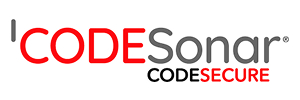Balancing high code quality while meeting tight deadlines is one of the biggest challenges developers face. Until recently, teams relied on manual code reviews to maintain code quality. However, this was time-consuming and prone to human error.
That’s where automated code review tools come in. These tools automate the code review process, reduce bugs, and enforce coding standards. As a result, software quality and team productivity improved significantly.
This article will cover the best 15 automated code review tools in the industry while looking into how they work, their key features, and pricing.
What Is Automated Code Review?
Automated code review is the use of software tools to analyze source code for quality, consistency, and security. These tools automatically scan the codebase to flag issues related to syntax, style, complexity, and known vulnerabilities.
By automating this process, development teams can:
- Catch bugs early before they reach production.
- Enforce coding standards across all contributors.
- Reduce technical debt over time.
- Save time by removing manual, repetitive review tasks.
- Improve overall code quality and maintainability.
Automated code reviews are especially powerful when integrated into the CI/CD pipeline. This ensures that every code change is checked against quality benchmarks before being merged or deployed. As a result, developers and tech leads can focus more on architectural decisions and less on routine feedback.
Best 15 Automated Code Review Tools
1. SonarQube

SonarQube is one of the most popular code review platforms. It is open-source, supports over 25 programming languages, and integrates easily with CI/CD pipelines.
Key Features
- Code smell detection
- Bug and vulnerability analysis
- Multiple languages supported
- Pull request analysis
- CI/CD integration
- IDE integration
- Customizable quality gates
Best For
- Enterprise-level code quality monitoring.
Pricing
- Community Build – Free and open-source
- Developer Edition – $500 annually
- Enterprise Edition – Price on request
- Data Center Edition – Price on request
2. Codacy

Codacy is another popular tool for automated code review. It provides detailed insights and metrics through its dashboard and integrates with popular version control systems.
Key Features
- Static code analysis
- Automated PR checks
- CI/CD integration
- Custom rules configuration
- Over 40 languages supported
- Seamless integration with IDEs
Best For
- Teams looking for easy integration with Git workflows.
Pricing
- Developer Edition – Free and open-source
- Team Edition – $18 per developer/month
- Business and Audit Editions – Price on request
3. DeepSource

DeepSource provides automated code quality and code coverage analysis. It also includes software composition analysis. It can identify problems in your code along with good and bad practices. DeepSource also provides an extension that auto-fixes issues.
Key Features
- Seamless CI/CD integration
- Developer-centric UI
- Accurate and fast static code analyzers
- Detects security vulnerabilities using static application security testing
Best For
- Teams looking for auto-fixes focus more on security-based scanning
Pricing
- Free Version
- Starter Edition – $8 per seat/month
- Business Edition – $24 per seat/month
- Enterprise Edition – Price on request
4. CodeClimate

CodeClimate is a static code quality analysis tool. It scans the code and identifies code duplication, code smells, and other areas for improvement. CodeClimate provides a maintainability score, which is a unique feature.
Key Features
- Provides code review comments on PRs
- Measures test coverage
- Integrates with GitHub and CI tools
- Prioritizes code based on logic
Best For
- Teams that focus more on metrics
Pricing
- Pricing can be received by requesting a consultation.
5. Bito AI

Bito AI is an AI-powered code review tool. It provides intelligent code reviews and uses advanced models to detect potential bugs, improve performance, and suggest refactoring strategies.
Key Features
- Supports multiple languages
- Seamless integration with popular IDEs
- Real-time suggestions
- Context-aware feedback
Best For
- Developers looking for smarter, AI-driven code reviews
Pricing
- Free Plan
- Team Plan – $15 per developer/month
- Enterprise Plan – $25 per developer/month
6. Deepcode (by Snyk)

Deepcode is an AI-powered code review tool that analyzes code changes in real time. It provides code improvements, catches bugs, and prevents vulnerabilities. It uses machine learning models to analyze code.
Key Features
- Static application security testing (SAST)
- Real-time code suggestions
- AI-driven bug detection
- Supports many languages
- Integrates with CI/CD
- Security-focused code scanning
Best For
- Developers who need AI-powered code reviews
Pricing
- Free Plan
- Team Plan – $25 per developer/month
- Enterprise Plan – Price on request
7. CodeRabbit

CodeRabbit is an AI-powered code review tool. It directly integrates with GitHub pull requests and uses large language models (LLMs) to provide fast, context-aware feedback on code changes.
Key Features
- Automated code reviews on every PR
- LLM-powered context analysis
- Supports JavaScript, Python, Go, etc.
- Easy GitHub integration
- Real-time suggestions and inline comments
Best For
- Teams using GitHub
Pricing
- Free Plan
- Lite Plan – $15 per developer/month
- Pro Plan – $30 per developer/month
- Enterprise Plan – Price on request
8. Coverity

Coverity is a static application security testing (SAST) tool developed by Synopsys. It is used to find critical defects and vulnerabilities. It can find bugs such as memory leaks, null pointer dereferences, uninitialized variables, and API misuse without executing the code.
Key Features
- Deep static analysis
- Supports 20+ languages
- Integrates with CI/CD
- Provides reporting and dashboards
Best For
- Teams who need static code analysis
Pricing
- Pricing can be requested from the sales team.
9. CodeSonar

CodeSonar by CodeSecure is a static analysis tool that detects serious defects that can cause system failures, particularly in safety-critical applications.
Key Features
- Supports C/C++, Java, C#, Kotlin, Python, Go, Rust, JavaScript, and TypeScript.
- Focuses on security vulnerabilities
- Deep semantic analysis
- Scalable
- Easily integrates with IDEs and CI tools
Best For
- Teams who have safety-critical projects
Pricing
- Pricing can be requested from the sales team.
10. Codiga

Codiga is another static code analysis tool that provides code snippets and real-time feedback in IDEs. It focuses on clean code, best practices, and collaboration.
Key Features
- Static analysis with custom rules
- Autofix code
- Scans for security vulnerabilities
- Coding assistant with code snippets
- Easily integrates with IDEs
- Supports JavaScript, Python, Java, and more
Best For
- Teams/Developers who need coding assistant features
Pricing
- Basic Plan
- Silver Plan – $10 per user/month
- Gold Plan – $18 per user/month
11. Review Board

Review Board is a web-based code review tool for developers and teams. In addition to code reviews, it also provides image and documentation reviews. It supports many version control systems and is ideal for formal review workflows.
Key Features
- Inline code reviews
- Issue tracking
- PR review
- Customizable workflows
- Integrates with CI/CD tools
Best For
- Teams looking for a formal review process
Pricing
- Free Version
- Team Edition – $4 per user/month
- Enterprise Edition – $21 per user/month
12. CodeScene

CodeScene, powered by CodeHealth, is a powerful static analysis tool that uses machine learning to identify code smells and technical debts.
Key Features
- Manages technical debt
- Automates code reviews
- Analyzes code coverage
- Predictive risk modeling
- Easily integrates with Git
Best For
- Teams who need to manage technical debt
Pricing
- Standard Plan – €18 per user/month
- Pro Plan – €27 per user/month
- Enterprise Plan – Price on request
13. SpotBugs

SpotBugs is the successor to the FindBugs tool. It performs static analysis to identify bugs in Java code. It only focuses on Java code.
Key Features
- Detects potential bugs
- Easily integrates with Maven and Gradle
- Plugins available
Best For
- Teams working in Java
Pricing
- Free and open – source
14. Gerrit

Gerrit is a web-based team code collaboration tool. It integrates with Git and is popular among large open-source projects for managing and reviewing changes.
Key Features
- Git-powered code review
- Detailed access control
- Flexible use of plugins
- Scalable
Best For
- Open-source and enterprise teams using Git at scale
Pricing
- Silver Package – $18,404 per year
- Gold Package – Price on request
- Platinum Package – Price on request
15. Scrutinizer

Scrutinizer is an automated code review tool that provides automated code reviews for PHP, Python, Ruby, and JavaScript. It offers insightful reports on quality, security, and complexity.
Key Features
- Static analysis
- Code coverage detection
- Easily integrates with CI/CD
- Supports many frameworks for the given languages, like Symfony, Laravel, and Django.
Best For
- Teams and developers who use PHP, Python, Ruby, JavaScript, Go, Java, and TypeScript
Pricing
- Basic Version – €49 per month
- Professional Version – €99 per month
- Unlimited Version – €199 per month
How to Choose the Right Tool for Your Team
When selecting an automated code review tool, organizations need to consider the below factors.
- Language support: the code review tool should support all the languages used in your codebase.
- CI/CD integration: the tool should easily integrate with your CI/CD pipeline.
- Customization: the tool should have customization capabilities.
- Pricing and licensing: based on the budget, specific tools and plans can be chosen.
- Security and compliance: the tool should provide a security-focused analysis.
By carefully evaluating the above factors, you can select a code review tool that best suits your company or team’s needs.
Conclusion
Automated code review tools have become a crucial part of the software development life cycle. They reduce manual effort, enforce coding standards, and improve the overall quality and security of the code. With the tools listed above, organizations can optimize the entire code review process.

